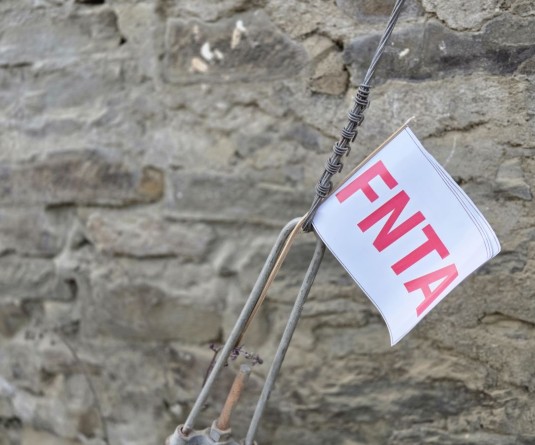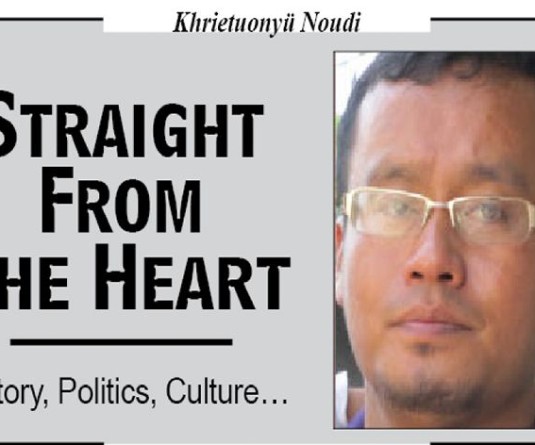
Thepfusalie Theunuo
Early nineteenth century was the dawn of the colonial power in the Northeast region; it was a period when the so-called anthropological primitives/savages/aboriginals open up to the new era of the so-called civilization. Since then transition and transformation in community life, traditional institution, village autonomy, tribal economy and religion were shattered from its pristine past. Colonial intervention in the region for that matter structured the already existing culture to suit the colonial traders and merchants, what was left for the people was free labour, unproductive tool and his fellow confused villagers. What one might argue at this point is the fact that the project of civilization or the project of modernity also came with the British colonial. Though this maybe empirically true, it can be argued that the project was in itself appropriated to its own advantages and sowed the seeds of the crisis that we are facing today.
Few major changes that came about were legal prohibition of head hunting, cartographing territorial boundaries, integration of villages and tribal communities into state-like administration, village elders were recruited into new political institution that would directly represent the people to the state, in the meantime mass conversion into Christianity was taken place all over the Naga Hills. For the Nagas it was a period of ‘historical puzzles’ while for the colonial it was a period of accumulation. This transformation that has taken place during the colonial period remains the watershed in the identity formation among the Nagas.
Ideas of nationalism for that matter became quit prominent and vocalised along with Indian Nationalism. However, what Naga nationalism had face in post-independence India is quite a different story for which I need not narrate the historical event for the dice are already loaded. What is interesting is the fact that Naga Nationalism over the sixty years has become a question of survival which has resulted into the formation of various factions based on ideological and political differences. To quote Antonio Gramsci ‘Ideology is simply an illusory, that played no role in revolution, and had character of manipulation’.
Naga nationalism today is also a religious project, but it is very clear that throughout the historical epoch, religion have always blurred the objective history of the people. Karl Marx in his writing mentioned very clear that religion is the opium of the masses; it makes the masses to remain unaware of the reality, and this is how capitalist class appropriated the labour of proletariat. Today Naga nationalism has become more an illusory project as well as opium.
What has become of this is the contestation of the new politics of identity. Inter-tribal identity discourse within the Nagas is the crisis that the state and its people need to seriously ponder. Thus before re-engaging on Nationalism, identity crisis within the Nagas needs to be resolved. The politics of representation and the politics of identity needs to be revisited and cannot brush aside in the name of economic development. As a community with diverse tribes, each tribe within the state has to be balance on the ground of humanity and not politics. The question of ‘who is indigenous’ and ‘who is not indigenous’ is a matter of serious concerned that needs to be theoretically and historically examine and not be decided by the elite who runs the state government, for this can undermined the already marginalised community in the state. The question and the politics of reservation in the state government should also be analyse and interrogated with seriousness in due time. Since economic infrastructure determined the socio-cultural and political milieu of the state, the economic project hugely determines the nature of identity crisis in our state. Unless the project of development is planned towards solving the problem of humanity there will always be a leak for the elites to siphon the public economic wealth.
Dimapur lynching 2015 is a serious example of how public frustration can become, inter-tribal violence that occur recently in Kiphire district, and the ongoing protest movement of the ACAUT against corruption and illegal taxation raise the questions on how the state have seriously failed to address the burning question that vex our state today.
Though we tend to live imaginatively and awkwardly in post-independence project under marginalisation, militarization and exclusion, the larger issue at hand at home for us today is to seriously ponder upon the division, categorization, tribalism, class inequality, the role of the state and civil society needs to be seriously interrogated.
Thepfusalie Theunuo Assistant Professor Dept. of Sociology, Sazolie College, Jotsoma & Doctoral Student, Dept. of Sociology, Tezpur Central University, Assam.





